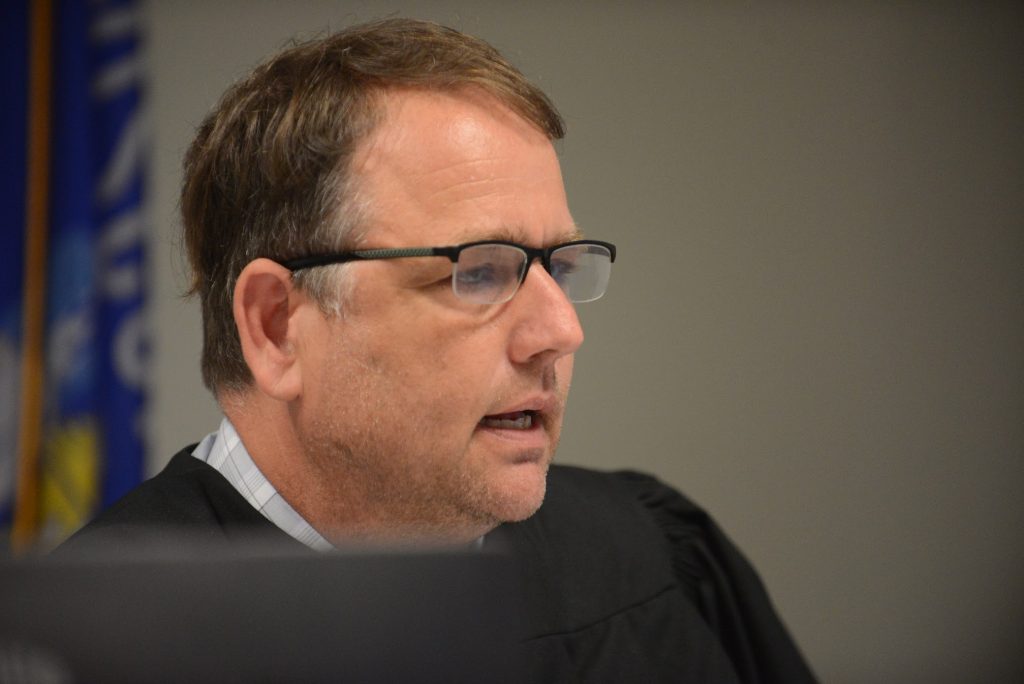
(File Photo by Kevin Mathewson, Kenosha County Eye)
KENOSHA, Wis. — As public debate continues over cash bail and pretrial release policies, a veteran Kenosha defense attorney says the system is often misunderstood — and that criticisms aimed at the commissioner’s bail decisions are often misplaced.
Michael D. Cicchini, a criminal defense lawyer and author based in Kenosha, says the confusion often stems from a basic misconception: “Bail isn’t a punishment,” he said. “The problem with high bail is that a lot of defendants end up, essentially, serving a sentence without a conviction.”
Cicchini, who has practiced criminal defense for over 23 years, says many of those cases are resolved with dismissals, non-criminal tickets, or low-level misdemeanors. “It’s easy for a motivated accuser to make an allegation that ultimately gets cut and pasted into a criminal complaint,” he said. “Talk, after all, is cheap. But it’s much harder to actually prove the allegation.”

(File Photo by Kevin Mathewson, Kenosha County Eye)
Under Wisconsin law, the main purpose of bail is to ensure a defendant appears in court — not to punish someone before guilt is proven. “Bail still cannot be used as a punishment,” Cicchini emphasized. “The legitimate purposes of bail have been expanded a bit recently, but as a practical matter that legislative change has added nothing new.”
Some Kenosha residents, particularly those with conservative leanings, have expressed concern over what they see as low bail amounts in serious or violent cases. But Cicchini says setting bail is far more complex than it appears from the outside.
“For example, if the District Attorney’s Office sends a defendant a summons in the mail, he hires a lawyer, and shows up for court, of course that should be a signature bond instead of cash bail,” he explained. “If he was going to flee, he wouldn’t have hired a lawyer and come to court.”
Similarly, defendants who voluntarily appear on a warrant typically receive lower bail. “Legally, when bail is imposed, it must be as low as possible,” Cicchini said. “Otherwise poor people end up, as I said earlier, serving a sentence without — or at least before — a conviction, and wealthy people pay the cash and get released.”
Cicchini also noted that Wisconsin law requires commissioners and judges to consider multiple factors when setting bail, including a defendant’s ability to pay, criminal record, ties to the community, and the strength of the evidence.
“Take the seriousness of the charges — yes, that’s a factor,” he said. “But it’s just one of many. And sometimes, once the defense actually gets access to the evidence, things change dramatically.”
That shift often occurs after the preliminary hearing, when cases move from the court commissioner to the circuit court judge. “Unfortunately, Wisconsin law allows prosecutors to hide all of the evidence from the defense until after the preliminary hearing,” Cicchini said. “Many states require disclosure before the prelim, but not Wisconsin.”
As a result, defense attorneys often file motions to reduce bail after reviewing the evidence — and judges sometimes agree. Cicchini recalled one case where a man was jailed for months until evidence surfaced that the accuser had actually been cited by police for obstructing, due to falsely accusing the defendant in this case. The case was ultimately dismissed.
“It was a classic case of serving a sentence without a conviction,” Cicchini said. “Getting your hands on the actual evidence is incredibly helpful for bail motions.”
For some members of the public, especially those frustrated by crime in their neighborhoods, there’s a natural desire to see tough consequences imposed swiftly. But Cicchini warns that trading due process for perceived safety comes at a high cost.
“Take the extreme case: if you deny bail to everyone accused of a crime, the community would of course be safer — fewer people would be out there to potentially commit crimes,” he said. “But this would come at a high financial cost to the taxpayers, and it would come at the expense of individual rights, such as the presumption of innocence and the statutory policy against unnecessary detention before conviction.”
Some critics also blur the lines between bail and punishment. “There’s a lot of confusion between ‘cash bail’ and a sentence,” Cicchini said. “But someone legally presumed innocent is still entitled to fair and reasonable conditions of release — even in serious cases.”
He emphasized that bail decisions are not meant to be simple, popular, or emotional. “It’s a decision that requires the commissioner or judge to seriously consider a lot of facts and balance some competing interests,” he said. “Like most things in the law, if you want to do it right, it takes some work.”
Cicchini urges residents to view bail through the lens of procedural justice, not the presumption of guilt. “Sometimes the commissioner’s bail decision won’t be popular,” he said. “But these bail rules and rules of criminal procedure are there for good reasons. If commissioners and judges disregard the rules, then we’re left with lawless chaos.”
In addition to his work as a defense attorney, Cicchini publishes legal scholarship and recently wrote an article for the Kansas Law Review on the topic of bail jumping. He makes all of his articles available free of charge on his website.
.
.
.
.




























